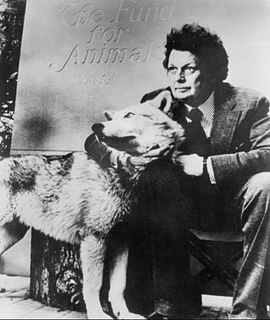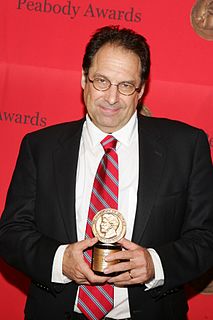A Quote by Oliver Tambo
You were not wanted. You were, at best, tolerated. You had to be constantly on your guard, like an animal in a jungle full of beasts of prey. You experienced it all within the short distance of five miles from the gates of St. Peter's to Park Station in the city.
Related Quotes
Unlike some people who have experienced the loss of an animal, I did not believe, even for a moment, that I would never get another. I did know full well that there were just too many animals out there in need of homes for me to take what I have always regarded as the self-indulgent road of saying the heartbreak of the loss of an animal was too much ever to want to go through with it again. To me, such an admission brought up the far more powerful admission that all the wonderful times you had with your animal were not worth the unhappiness at the end.
I had proposed to HBO a series about the city cops in Rome at the time of Nero. What had interested me was the idea of order without law. The Praetorian Guard, who were the emperor's guards, understood how they were to proceed. But for the city cops, who were called the Urban Cohorts, there was no law at all.
When I came to this country in 1958, to be a dying patient in a medical hospital was a nightmare. You were put in the last room, furthest away from the nurses' station. You were full of pain, but they wouldn't give you morphine. Nobody told you that you were full of cancer and that it was understandable that you had pain and needed medication.
'm constantly depressed by the Mexican gang members I meet in East L.A. who essentially live their lives inside five or six blocks. They are caught in some tiny ghetto of the mind that limits them to these five blocks because, they say, "I'm Mexican. I live here." And I say, "What do you mean you live here - five blocks? Your granny, your abualita, walked two thousand miles to get here. She violated borders, moved from one language to another, moved from a sixteenth-century village to a twenty-first-century city, and you live within five blocks?"
If you look back in history, as the barbarians were invading the gates of Rome, people were consulting fortunetellers and worrying about the end of the world and all sorts of other apocalyptic notions. When the tsars were finally overthrown, they were all reading tarot cards even as the revolutionaries were banging at the gates.
Those five fingers and that palm were like a display case crammed full of everything I wanted to know--and everything I had to know. By taking my hand, she showed me what these things were. That within the real world, a place like this existed. In the space of those ten seconds I became I tiny bird, fluttering in the air, the wind rushing by. From high in the sky I could see a scene far away. It was so far off I couldn't make it out clearly, yet something was there, and I knew that someday I would travel to that place.
America was the funder of petro-dictatorships. We treated all these countries as basically big, large gas stations: Libya station, Iraq station, Iran station, Egypt station, Syria station, and all we asked of them were three things: Keep your palms open, your prices low and don't bother Israel too much, and you can do whatever you want to your own people.
He should have known better because, early in his learnings under his brother Mahmoud, he had discovered that long human words (the longer the better) were easy, unmistakable, and rarely changed their meanings, but short words were slippery, unpredictable changing their meanings without any pattern. Or so he seemed to grok. Short human words were never like a short Martian word - such as grok which forever meant exactly the same thing. Short human words were like trying to lift water with a knife. And this had been a very short word.

































